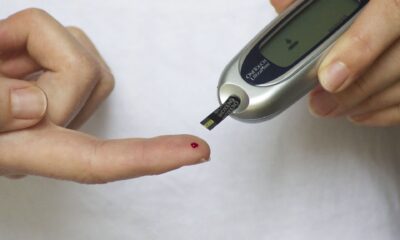
Featured Item

Oversized risks of using Ozempic for weight loss
Many see Ozempic, a medication specifically for Type 2 diabetes, as the new magic weight-loss drug, but experts warn it could be dangerous.
“The drug is unfortunately being prescribed freely for weight loss without any nutritional guidance. Therefore, people are losing weight but not in a healthy way,” said registered dietician Gaby Sidelsky.
“The suppression of appetite can cause under-eating, which can then lead to muscle loss, bone problems, and other issues occurring from under nutrition. If used safely and with nutritional counselling by a qualified dietitian, it’s an effective weight-loss aid,” Sidelsky said.
Ozempic is feeding into the 21st century trend of “instant gratification”, said specialist psychiatrist Felicity Marcus.
“Patients don’t realise that these aren’t quick-fix medications,” said Dr Charlene Wolberg, who has a Master’s degree in nutritional science and practices as a general practitioner and dietician. “You can abuse Ozempic. You can abuse any weight-loss medication. You can eat shockingly and still lose weight, and that’s actually the unfortunate side to it,” she said.
Marcus and Wolberg say that Ozempic has become somewhat of a trend in Hollywood among celebrities trying to attain the beauty standard of being skinny.
“It really does push an agenda of skinny is right,” Marcus said, stressing the detrimental effects on celebrities as well as adults in the South African Jewish community. As role models who people look to for advice, celebrities who are able to access Ozempic are conforming to society’s thin-is-beautiful stereotype without considering the true purpose of these medications. Celebrities are “tarnishing the weight loss industry,” Marcus said. “They are minimising what these drugs are designed to do as well as the benefits,” Wolberg said.
Though the ideal of being skinny is promoted in the media and Ozempic is abused as a quick fix, “we should rather be promoting body positivity and acceptance”, Marcus said. “The impression that this is what you need to do to look a certain way and be accepted as beautiful is creating unrealistic, unhealthy beauty standards.”
Though Ozempic is registered as a drug for lowering blood sugar levels in people with Type 2 diabetes, it’s being prescribed to patients classified as chronically obese to help control their weight and prevent other comorbidities caused by being overweight. Wolberg said that in cases of obesity, defined by a BMI (body mass index) “greater than 30”, Ozempic, along with a healthy eating and exercise plan, is a “chronic medication” that is beneficial.
“These drugs offer long-term protective effects,” Wolberg says. “Weight-loss drugs reduce the risk of heart attack and cardiac failure by 20%. They reduce the risk of strokes by 39%. But when patients don’t understand that this is a proper scheduled medication that needs to be monitored by a professional who understands the field, whether it’s for diabetes or obesity, and implements the medication along with lifestyle modification, this is where the abuse of the medication comes into play.
“These drugs are registered for chronic use. If used without supervision, when you stop using them after six months, you will regain all the weight plus a bit more. And if you have done nothing in terms of modifying your lifestyle, you land up doing more of a disservice to your body by using the medication,” Wolberg said.
Wolberg said humans have a natural hormone in their body, GLP1, released from the intestines after we eat which goes to the part of brain that controls feelings of hunger and satiety. Ozempic is an “analogue” of this natural hormone, and “increases patients’ feelings of satiety”. Ozempic shouldn’t stop one from eating or giving the body the nutrients it needs, rather “if patients are eating a balanced meal, it helps to control the portion size of that balanced meal”.
Said Sidelsky, “Most of the weight loss we have seen has been due to loss of muscle mass. It’s therefore imperative that you exercise – using strength/resistance training – and eat enough calories and protein to minimise muscle loss.”
According to Wolberg, “it dampens down that emotional need for eating and using food as a source of emotional comfort”.
Marcus acknowledged the psychological benefits of Ozempic’s weight loss on “self-esteem and confidence” and “anxiety around being in a bigger body or not being able to manage your eating”. However, she contrasted this benefit with Ozempic’s abuse on our psychological state.
“If you’re not getting enough nutrients in your body, it can result in mood changes or low mood,” Marcus said. “Your body relies on food to have enough energy to get through the day. Anxiety around being able to maintain the weight loss or discomfort with the change in appetite,” have adverse effects on mental health.
Ozempic is a “two-sided coin” when it comes to weight loss. It may be a quick and easy tool to lose weight, but it’s dangerous when it becomes a crutch.










